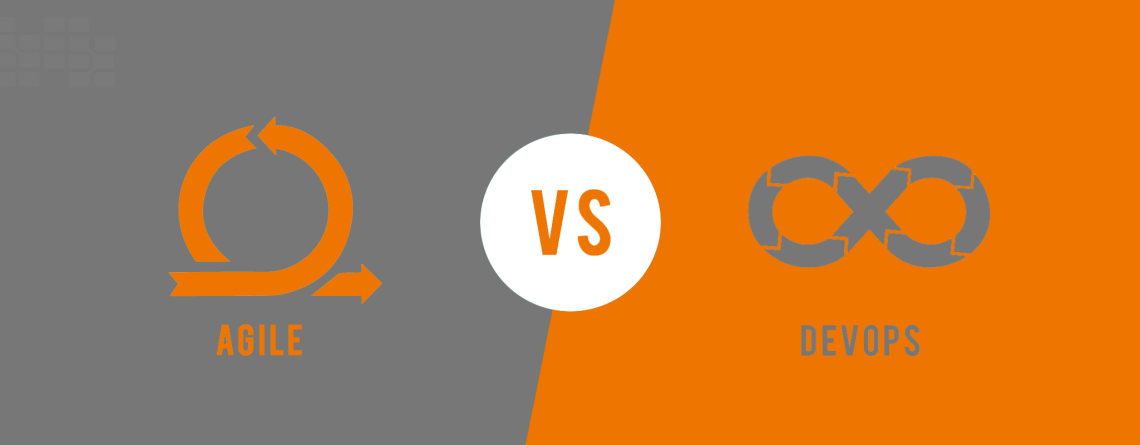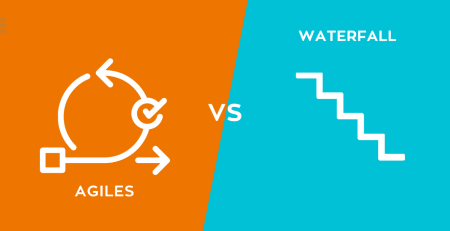DevOps Vs. Agile: Understand The Difference
DevOps and Agile software development approaches both strive to offer the end product in an effective and efficient manner. Although most businesses are eager to implement these strategies, the two concepts are sometimes misconstrued. Despite the fact that they provide the same services, they operate in slightly different ways. Teams must know when to collaborate, when to overlap, and when to choose one over the other. You may rely on industry professionals to provide extensive answers if you ever find yourself torn between options. Examine the distinctions between DevOps and Agile, as well as how they might be combined.
What is DevOps?
DevOps is a method of software development that allows teams to swiftly produce, test, and deliver products. It integrates agile concepts including as automation and team collaboration. The most significant resemblance between DevOps and Agile is that both include development, testing, and deployment. Traditional agile, on the other hand, requires less operation, which is critical to DevOps success. Teams must know when to collaborate, when to overlap, and when to choose one over the other. You may rely on industry professionals to provide extensive answers if you ever find yourself torn between options. Examine the distinctions between DevOps and Agile, as well as how they might be combined.
What is Agile?
Purpose
The primary premise of DevOps is to manage end-to-end engineering operations. Continuous testing and delivery are the main priorities. Agile, unlike DevOps, focuses on managing complicated projects and is constantly changing.
Implementation
Because DevOps emphasizes collaboration, there is no universal framework. Agile, on the other hand, can be implemented using a variety of tactical frameworks like as scrum, safe, and sprint.
Team Abilities
DevOps splits and shares the development and operations teams’ skill sets. Because stakeholders are involved, the teams are also large. Meanwhile, Agile development focuses on teaching all team members numerous abilities that are similar and equal. Agile teams are also tiny since the fewer members on a team, the faster they can complete tasks.
Communication
Many specs and design documents are required for the operation team to understand software releases in DevOps communications. For the deployment process to run smoothly, the team must also grasp the hardware and network consequences. Agile development is organized into “sprints,” which are managed units that last less than a month.
Documentation
Because the software will be given to the operations team for deployment, DevOps consulting services priorities process documentation. Inadequate documentation has no effect on automation. However, the expertise needed to construct complicated software is difficult to convey. In the meantime, Agile promotes working systems above full documentation. When you’re adaptable and responsive, it’s a must. When trying to hand things over to another team to deploy, it can be ineffective.
When should Agile and DevOps collaborate?
DevOps is a more advanced form of agile methods or an essential component of agile. Its goal is to implement agile innovations in operations. Similarly, certain agile principles can only be fully realized when combined with DevOps approaches. For example, continuous software delivery is mentioned frequently in agile documentation and DevOps consulting services. Continuous delivery is considered a DevOps practice since delivery pipelines contain operations concerns. Improved communication within and between teams is required to improve feedback loops. Agile communication is facilitated through agile ceremonies such as daily standups, retrospectives, and planning sessions.
Why is DevOps Better than Agile?
Agile software development adheres to industry best practices in order to provide high-quality software on schedule. The problem with best practices is that developers, testers, and ITOps all work in silos. Because these teams have little communication, they are unaware of what others are doing in the same process. When software has problems or fails, the blame game begins. Silos are broken down to work as one team in a web app development company utilizing DevOps.
DevOps engineers write, test, and deploy code to production environments. The engineer is also in charge of the entire process, which means fewer issues. With these observations in mind, it’s clear that DevOps and Agile both strive to provide value to the end user effectively from different perspectives. DevOps brings the operations team on board to support continuous integration and delivery, while Agile focuses on improving developers and development cycles.













Leave a Reply